Lebanese protesters block roads, burns tires over economic hardships
People have taken to streets in Lebanese cities to protest against the deteriorating living conditions in the Middle East country located along the Mediterranean Sea.
Protesters, some of them burning tires, blocked roads in central Beirut, Tripoli in northern Lebanon, and the southern city of Sidon on Monday.
The protesters demanded better living conditions amid the ongoing economic crisis.
The country's economic meltdown, which began in 2019, has propelled more than three quarters of the population into poverty and the local currency has plummeted by over 90%.
According to the United Nations, four in five Lebanese are now considered poor.
A political deadlock in the country has compounded the economic crisis.
Lebanon's government has been in paralysis since a row started during a cabinet meeting over changing the judge leading an investigation into a fatal explosion at Beirut port in August last year. The cabinet has not convened since then. The cabinet's main focus was on a revival of talks with the International Monetary Fund, needed to unblock foreign aid to the country.
The World Bank estimates it may take Lebanon nearly two decades to recover its pre-crisis per capita GDP.
In the meantime, government subsidies have been cut back on almost all items, including essential commodities such as petrol, diesel fuel and cooking gas, plus medicine.
Filling a vehicle's fuel tank in Lebanon now costs more than the minimum monthly wage.
To make matters worse, the Lebanese pound sank to new lows in past days.
According to websites monitoring the black market rate last week, the pound was trading at 25,000 to the dollar, or nearly 17 times less than its official peg value of 1,500.
The new record, topping a previous low of more than 24,000 earlier that week, adds to the troubles of the newly-formed Lebanese government.
With the currency losing more than 90 percent of its value in two years on the black market, the purchasing power of Lebanese is plummeting, and the minimum monthly wage of 675,000 pounds is now worth just $27.
The economic and political crisis, which experts say is caused by some foreign powers’ interference in the country’s affairs, plunged Lebanon’s population into poverty. Political pundits in Lebanon blame harsh US sanctions slapped against the hapless Lebanese nation as the cause of the crisis.
“The United States’ policies are the main cause of problems facing Lebanon; especially as Lebanese banks are under US control and Lebanon's economic system is affiliated with it. The tragedies that have plagued Lebanon over the past decades are all the result of American policies," head of Hezbollah Executive Council, Seyed Hashem Safieddine, said last week.
Safieddine noted that instead of aiding the nation find a solution to the worsening crisis, the US has exerted ever more pressure to suffocate the Lebanese people.
The Hezbollah official said the country was presently facing multiple problems, including financial, economic, and political issues. He said cooperation with others’ was needed to resolve the crisis, and nothing would change if others did not join hands.
“Things have been clear to us ever since the current crisis broke out. We identified the root causes of the predicament and prescribed effective remedies. The problem does not rest with us. We cannot administer remedies alone in order to resolve lingering economic, social and livelihood problems. Things would not improve and we would not be able to change the course if others do not join hands with us.”
“If America really wants to solve the Lebanon crisis, it must allow the Lebanese to take responsibility for their own oil, lift sanctions imposed on Lebanon, and stop pressure on the countries that can help the Lebanese nation,” Safieddine said.
He said Washington was not interested in resolving the crisis.
“The United States does not really want to come up with a solution to the Lebanon crisis. US officials are waiting for the results of the upcoming general election in Lebanon [scheduled for next March]. They would think of conditional ease of sanctions if the outcome is favorable to them; otherwise they would escalate their pressure,” Safieddine added.
The economic and financial crisis is mostly rooted in the sanctions that the United States and its allies have slapped on Lebanon as well as foreign intervention in the Arab nation’s domestic affairs.
To worsen the matter, Saudi Arabia has imposed its own sanctions, including banning its citizens from traveling to Lebanon where Riyadh-backed elements have been jockeying for positions.
The current crisis is the most serious issue threatening the country’s stability since the 15-year civil war ended in 1990.
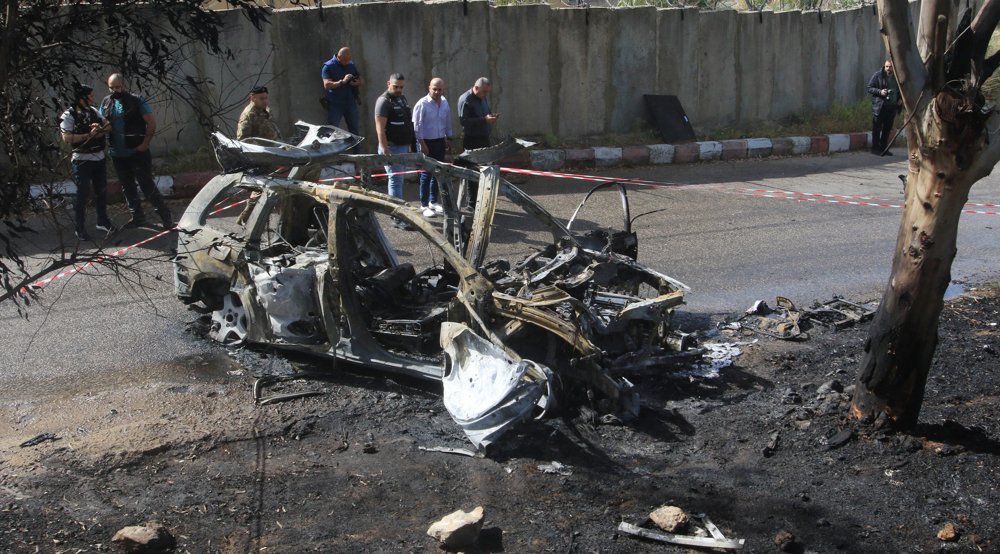
Hezbollah urges Lebanese govt. to act after Hamas-allied leader assassinated
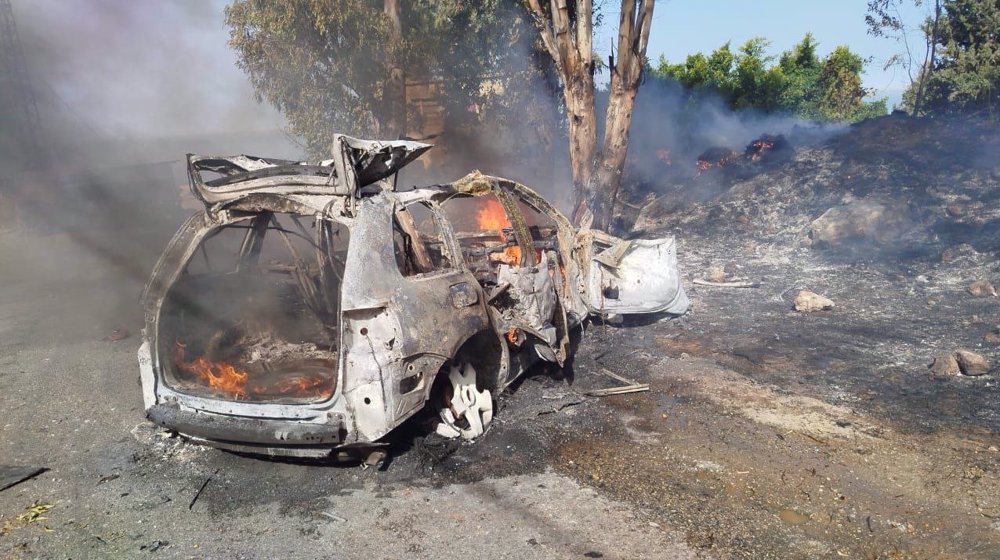
Senior Hamas-allied leader killed in Israeli drone strike south of Beirut

Israeli airstrikes kill at least two in southern Lebanon: Health officials
VIDEO | Press TV's news headlines
VIDEO | Pakistan’s business and cultural front unites for Gaza: Nationwide shutdown, boycott announced
US jets carry out more aggression against Yemen
Syrian militants enslaving Alawite women in Idlib governorate: Report
VIDEO | US pro-Palestinian campus protest
VIDEO | Palestinian civil defense rejects Israel’s probe and exposes the crime
India downgrades ties with Pakistan after deadly Kashmir attack
Iran’s steel output up 3.7% y/y to 3.3 million mt in March


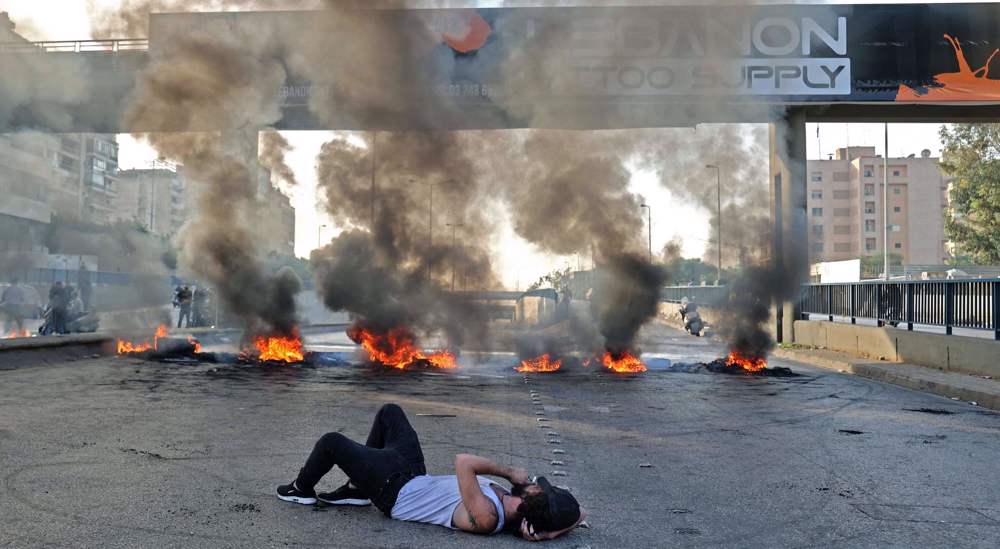
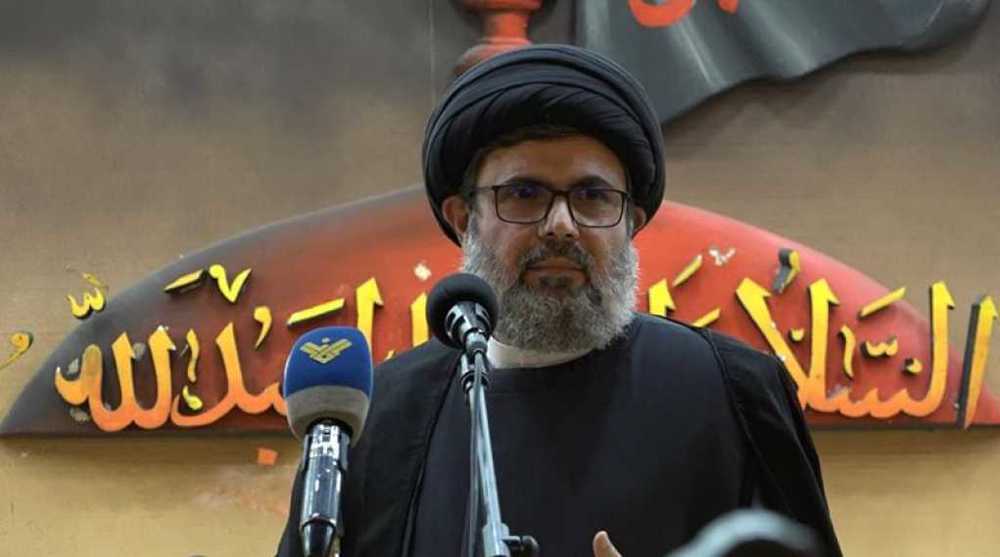
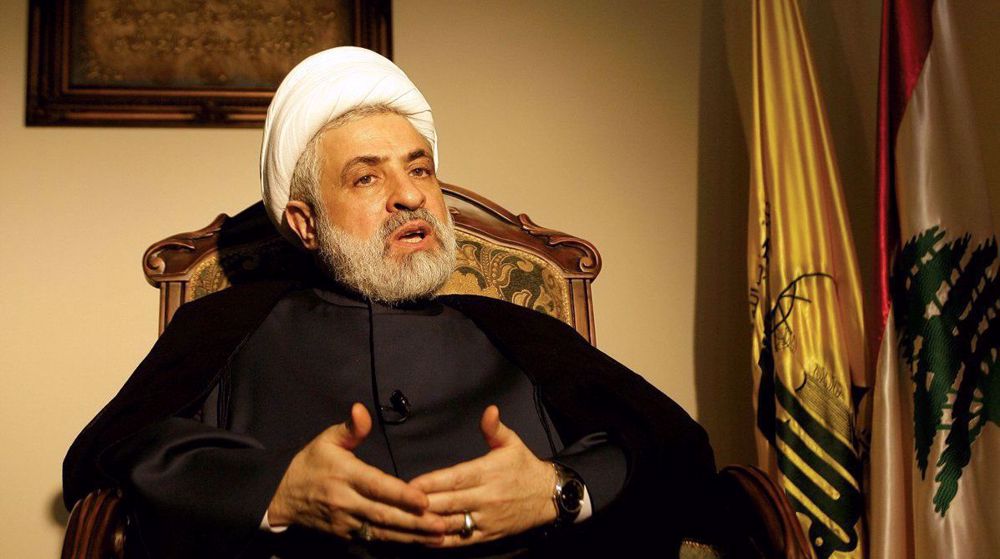




 This makes it easy to access the Press TV website
This makes it easy to access the Press TV website